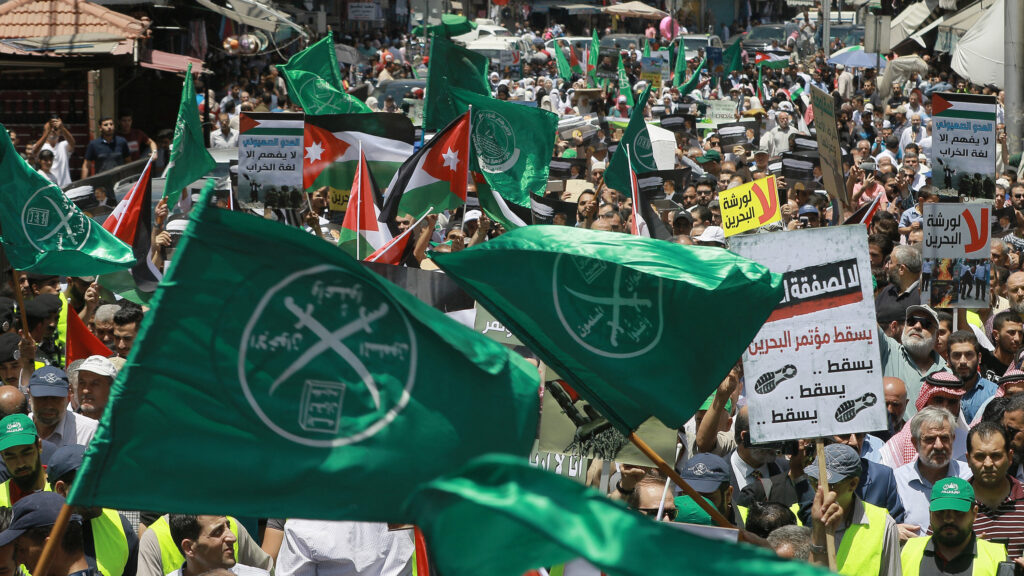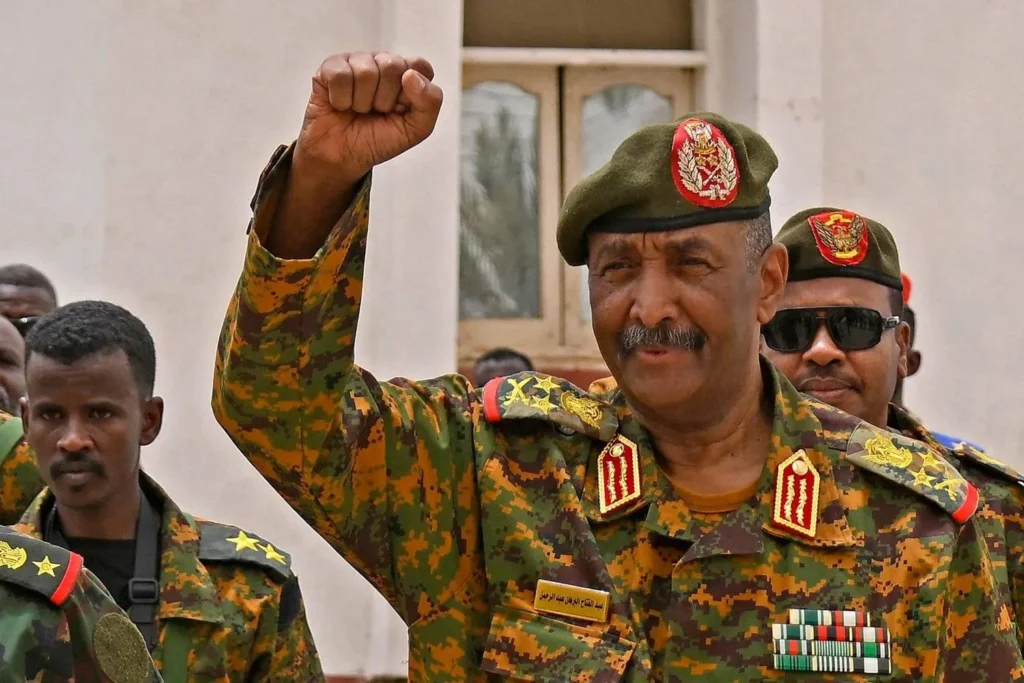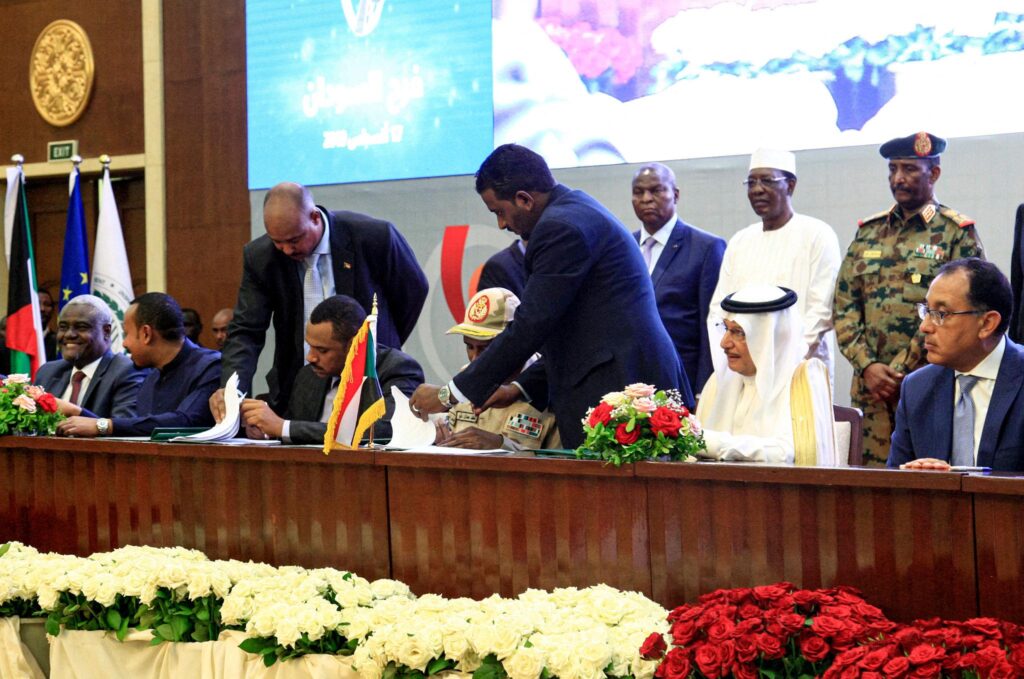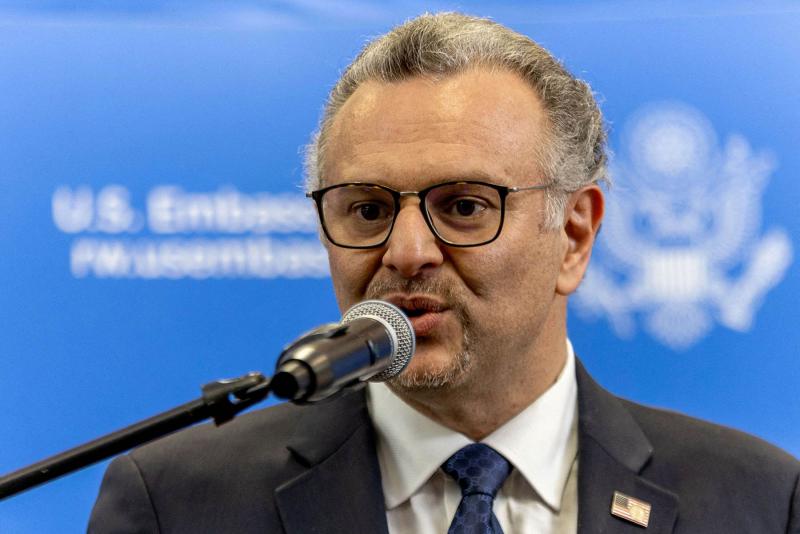
In a major shift in U.S. policy toward the Muslim Brotherhood, President Donald Trump on Monday signed an executive order initiating procedures to designate several of the movement’s branches in the Middle East as Foreign Terrorist Organizations (FTOs), the White House said.
In a statement, the White House said the order covers Brotherhood branches in Lebanon, Egypt and Jordan, accusing them of taking part in, facilitating or supporting campaigns of violence and destabilisation that threaten their own societies as well as U.S. citizens and interests.
Under the order, the secretary of state and the treasury secretary have 30 days to submit a joint report to Trump on formally listing those branches as FTOs. The White House said the step followed mounting concern inside the administration over the Brotherhood’s global activity and the perceived threat of its ideology to Western societies.
Trump, quoted by the outlet “Just the News”, accused the Brotherhood of using mosques, charities and cultural or social centres as fronts to recruit followers and build what he described as a “misled community”, calling those activities a direct threat to U.S. interests and allies in the Middle East.
The move comes days after Texas Governor Greg Abbott declared both the Muslim Brotherhood and the Council on American–Islamic Relations (CAIR) “foreign terrorist” and “transnational criminal” organizations. That state-level designation bars them from buying or owning property in Texas and allows the attorney general to seek court orders to shut them down. Republicans in Congress, joined by some Democrats, have also been pressing the State Department for years to blacklist the Brotherhood, and Senator Ted Cruz has previously introduced legislation requiring the president to act.
The Washington Institute for Near East Policy, in a recent analysis cited by the report, said U.S. concerns over the Brotherhood have grown and argued that branches linked to violence should be designated as terrorist organizations, while also calling for a robust legal framework to police the group’s activities using sanctions and law-enforcement tools. Analysts say Trump’s order marks a qualitative shift in Washington’s approach, moving from years of legal and political debate over the Brotherhood’s nature to concrete measures aimed at specific branches accused of backing armed groups.
According to the executive order, Brotherhood branches in Lebanon, Jordan and Egypt are accused of directly participating in or supporting violent operations. It says the Lebanese branch’s armed wing joined Hamas, Hezbollah and other Palestinian factions in launching rocket attacks on civilian and military targets inside Israel after the Oct. 7 assault. It adds that a leader of the Egyptian branch publicly urged attacks on U.S. partners and interests, while Brotherhood figures in Jordan have for years provided material support to the armed wing of Hamas.
These activities, the order states, pose a threat to the safety of U.S. civilians in the Levant and other parts of the Middle East, as well as to the security and stability of regional partners. Washington’s stated policy, it adds, is to work with those partners to degrade the capabilities of designated Brotherhood branches, cut off their funding and eliminate any threat they pose to U.S. nationals or national security.
Egyptian analyst of political Islam and extremist groups Hesham al-Najjar told Sky News Arabia the move was significant as the first of its kind by Washington, signalling that U.S. dealings with the Brotherhood and its branches have changed sharply compared with a decade ago, when the group was still viewed in some Western capitals as a legitimate political actor. He said the decision ushers in a new phase for a movement that is already weakened and under intense security pressure, adding to its political, security and financial burdens.
Maher Farghali, a specialist on extremist groups, said Trump’s decision shows he chose to start confronting the Brotherhood through branches directly involved in the conflict with Israel. He argued the most immediate impact would be on the Jordanian branch, which he said relies on a large Palestinian base tied to Hamas, making it a more significant target than the branches in Lebanon and Egypt. Farghali noted that Lebanon’s Islamic Group, which has an armed wing known as al-Fajr Forces, has in recent years coordinated closely with Hezbollah, making its inclusion in the terror list a logical step given its militant activity. In Egypt, he said, the Brotherhood’s effective leadership now operates from abroad, so the U.S. move will mainly constrain leaders’ movements, financial transfers and institutions that operate under the Brotherhood banner overseas.
Ahmed Sultan, a researcher on regional security and terrorism, said the order was expected, the product of intersecting internal U.S. dynamics and the current regional turmoil. He noted that the Brotherhood has no legal corporate existence inside the United States, so banning a non-registered entity will not change much procedurally, but will allow authorities to freeze assets, deny legal status and pursue leaders domestically or bar their entry.
Sultan described the executive order as the start of a process that could culminate in formal FTO designations for the named branches. He added that targeting the Egyptian, Jordanian and Lebanese branches was no accident, since they are already outlawed in their home countries, limiting the risk of friction with allied governments. He said the Lebanese branch was singled out in part because of its role during the “Al-Aqsa Flood” events, when al-Fajr Forces joined an attempted cross-border operation towards northern Israel before suspending their actions amid internal disputes.
According to Sultan, the U.S. move aligns with longstanding demands by several Arab states that have pushed for a tougher American stance on the Muslim Brotherhood.




